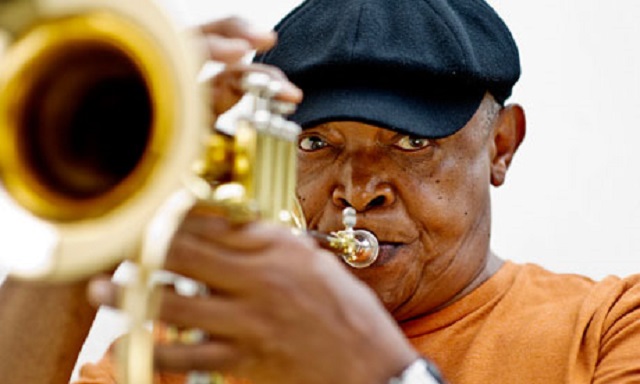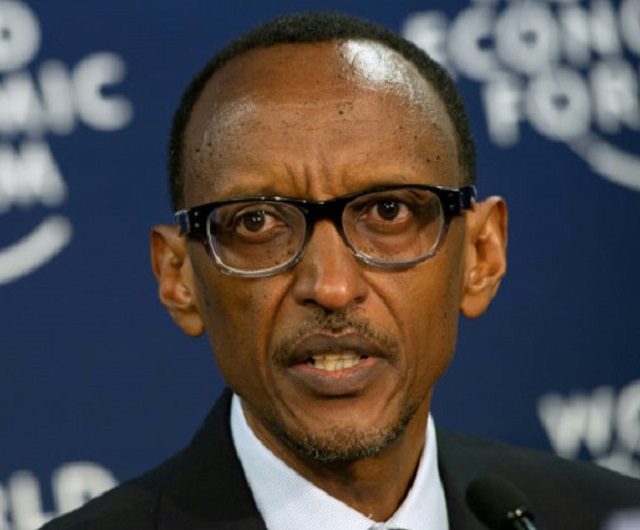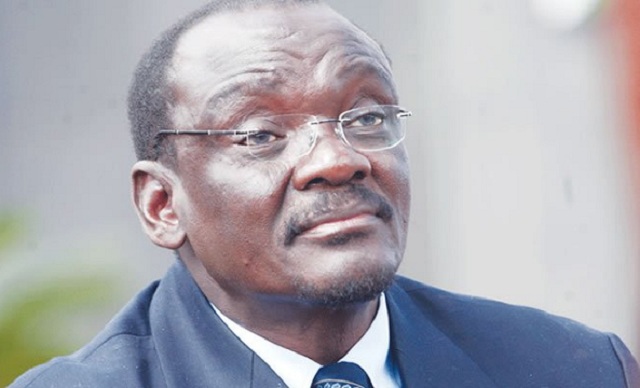Lala ngoxolo Bra Hugh Masekela

Lenox Lizwi Mhlanga
I had the privilege to interview Bra Hugh Masekela and his then promoter Peter Tladi at the then Sheraton Hotel in Harare. It was for a Ztv jazz programme produced by legendary Victor ‘Longest’ Ncube in 1999.
The interview was quite engrossing, intriguing, yet funny. It only stood next to the one I did with the late Pan Africanist Tajudeen Al Raheem in terms of sheer entertainment value. It was never lost on me that I was sharing space and time with an icon. To say I felt intimidated by his stature was an understatement.
Be yourself, Victor advised, but soon Hugh’s demeanour calmed the nerves. He came out bubbly, full of humour, cynical and so down to earth. He disarmed me completely. It was more like chatting to an old tshomie from ekasi. Cracking jokes per minute and slapping my shoulder, I was quickly won over.
I watched an interview, one of many on various television networks, with BBC Hard Talk’s Zanaib Badawi and the emotions came pouring out. It reminded me of what a great man he was, yet he made talking about his life experiences so intriguing. More like James Bond meet the township musician.
At our interview in 1999, he loudly complained about how he was detained at the then Harare International Airport, because immigration said he was still blacklisted as a prohibited person, so many years after SA’s independence. He hated bureaucracy, and political buffoonery.
Hugh spared no kind words about how skewed the liberation struggle had become in South Africa, and indeed the continent. He felt that the former liberation movements had totally lost the plot.
He also talked glowingly of his promoter friend, the late Job Kadengu. The countless nights they spent quaffing whisky and talking about jazz, women and politics. He spoke with emotion about the vices of fame, that almost led to his downfall.
At one point in the interview, he looked me straight in the eye and asked, ‘Do you do drugs?’ That question threw me off-guard because of the accusatory manner it was thrown at me. Before I could respond, he bellowed, “Don’t!”
He then went on to relate how alcohol had decimated members of his family. Drugs, so fashionable among artists, had sent him to rehab.
“I have lived to tell the tale, and tell it I will,” he declared, taking me through the emotional struggle related to weaning himself from drug and alcohol abuse.
I never watched the eventual broadcast of that recording and when I later looked for it in the ZBC archives, I was told to my horror that because of lack of resources, producers had reused all those tapes that we made of iconic programmes that I presented in the 1990’s.
Back series of Showcase, Good Morning Zimbabwe and This Week, all produced by my man, Tula Dlamini are lost forever. This is the curse of the pre-digital era, the Jurassic Age of local broadcasting, I call it.
When I moved from television to Radio One, I worked with compilers, the late Jethro Nyamambi, Eric Kolosa and Stanley Mandlazi, at Pockets Hill, to launch Afro Jazz on Thursday. I was moved by the listenership, especially when it was live, from the shebeens of Mpopoma, Luveve, Nkulumane, during its late-night slot.
This radio programme was to become a celebration of the music of the likes of Bra Hugh, Abdullah Ibrahim, Jonas Gwangwa, Cephas Semenya and Letta Mbulu. The sultry Miriam Makeba, and ageless Dorothy Masuku, Dolly Ratebe with Judith Sephuma serenaded listeners.
The instrumentalists of the likes of the African Jazz Pioneers, Louis Mhlanga, Pope Mohammed, Khaya Mahlangu, McCoy Mrubatha, Mandla Masuku, Sipho Gumede, SelaeloSelota, and ZimNgqawana. The driving rhythm and vocals of Ray Phiri and Stimela, Mbongeni Ngema, Sankomota, and FelaKuti.
Not forgetting Zimbabwean musos such as my former Northlea student, Victor Kunonga, Oliver Mutukudzi, Max Vidima and many more.
It was an African tapestry on classic radio. I presented Afro Jazz on Thursday religiously from 1999 right through to 2004 on the reconfigured SFM from Montrose studios on a part time basis. But significantly, it became mandatory, to feature at least one Masekela tune in virtually every programme.
Afro Jazz on Thursday was a celebration of a brilliant art form and a tribute to my late father J. Themba Mhlanga, who was known to his friends by the nickname, the Jazz Man. Whose jazz collection planted the early seeds of my lifelong obsession with jazz music.
Whether it was the political Bring Him Back Home and Chileshe, or the celebratory Thanayi, Makoti or Khawuleza. Then there was the epic Stimela-Coal Train or going into the archives to marvel at Grazing in the Grass or Skokiaan with Herb Alpert, the playlist is endless. The magic of the Internet allows one to revisit most of his performances. One does not have to be persuaded that this was truly a great man.
Masekela was to reveal much later in an interview with my long-time mentor, Comfort Mbofana on Star FM radio, that he had his roots in Zimbabwe. His Karanga great-grandfather, Munyepawu was a Lutheran evangelist who migrated with German missionaries into Limpopo to convert the Tsongas, Vendas and Southern Ndebele to Christianity in the mid 19th century.
According to the Witbank-born musician, the Munyepawu clan were also chief agriculturalists at the time and had to look for fertile land which is Masekela. That is how they took the name.
They say Rest in Power Bra Hugh. Lala ngoxolo, your staccato laugh will continue to ring in my ears, as much as my father’s musical DNA runs in my veins and that of our progeny. I know my children Bongani and Anele are taking up the musical torch. TinobongaYamboMasekela!












Comments